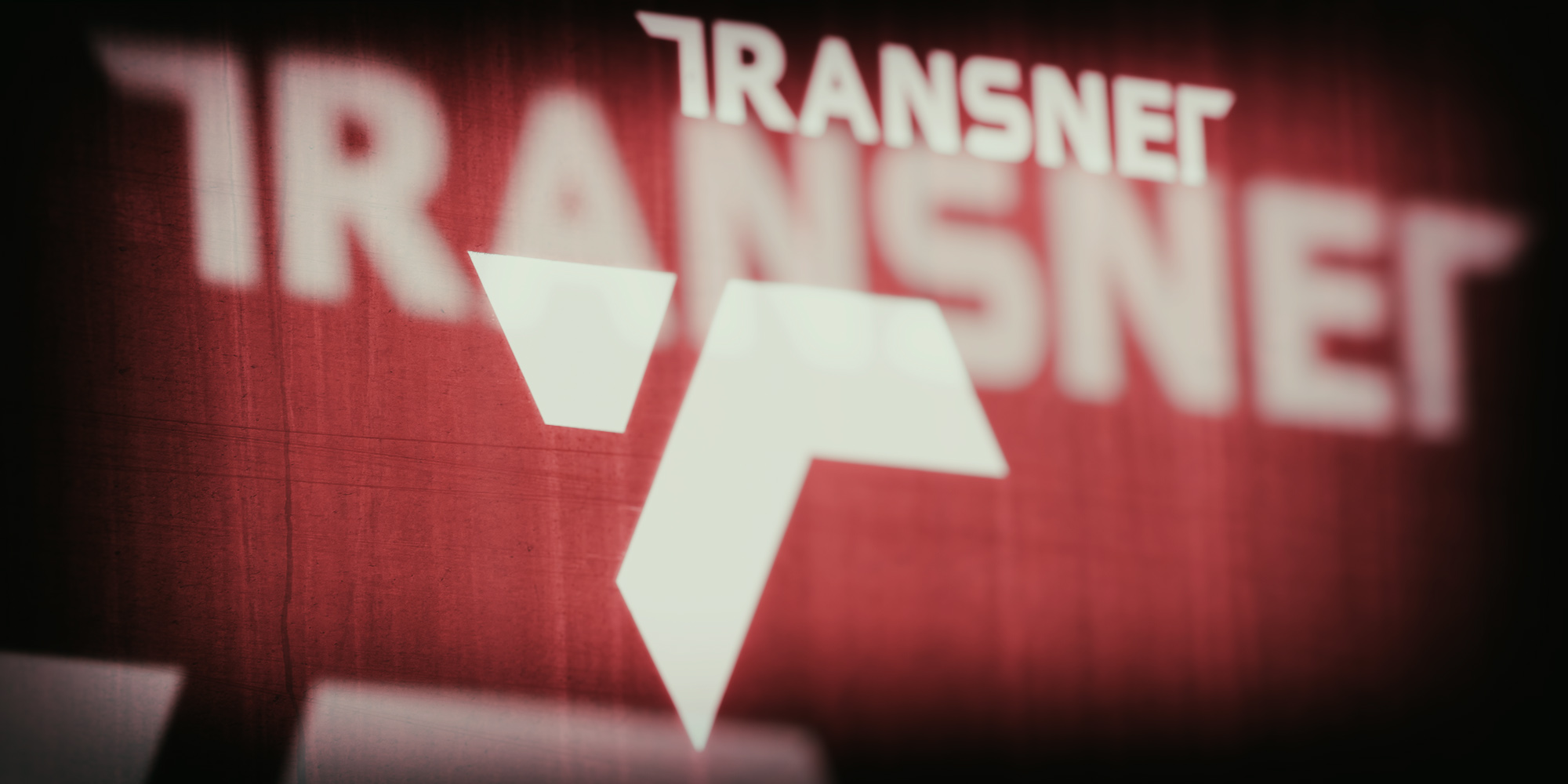In many troubling ways, transport group Transnet is at risk of becoming the next Eskom.
Both state-owned enterprises have experienced many years of neglect and underinvestment in their infrastructure by the government, resulting in their inability to perform basic functions — moving goods through ports and by rail, or generating and delivering electricity.
If Eskom is the heartbeat of South Africa’s economy, Transnet is the spine.
But not only are operations at both entities in a perilous state, so are their financial situations, with both entities often reporting financial losses and carrying smothering debt of billions of rands.
To add to their troubles, labour relations at Eskom and Transnet have deteriorated. A nearly two-week strike at the power utility earlier this year pushed South Africa deeper into rolling blackouts. The dispute ended when workers walked away with a 7% pay rise.
Transnet has also been in the throes of a labour dispute as its workers, inspired by what their counterparts achieved at Eskom, have downed tools for more than a week, demanding a pay rise that is at least equivalent to the inflation rate, which measured 7.6% in August.
Read more in Daily Maverick: “R1bn a day — SA counts the cost while Transnet strike drags on”
Workers employed in Transnet’s marine operations and those who guard ports are not allowed to take part in the strike as they are considered to provide an essential service, as agreed by Transnet and trade unions.
The strike — led by trade unions recognised by Transnet, including the United National Transport Union (Untu) and the South African Transport and Allied Workers' Union (Satawu) — has mainly affected the company’s port terminals in KwaZulu-Natal.
As ports operate with skeleton crews, the productivity of Transnet’s operations has been throttled. Nearly 30 vessels were stuck outside Transnet’s terminals facing delays in docking.
There haven’t been major strike-related disruptions reported at Transnet’s other port operations, mainly in East London, Ngqura, Gqeberha, Mossel Bay, Cape Town and Saldanha, or at its rail networks.
A Transnet insider, who is part of the wage negotiations, told DM168 that the company’s management is already worried about workers downing tools, and it will be “overly concerned” if the strike is prolonged.
“That is when shit will hit the fan — not only for Transnet but also South Africa’s economy,” said the insider.
https://www.dailymaverick.co.za/article/2022-10-06-transnet-port-terminals-declares-force-majeure-in-the-wake-of-illegal-strike/
Ballooning wage bill
Transnet pulled in revenue of R68.5-billion during its 2021/22 reporting year, but its financial situation is already worrying. It costs R26.2-billion to pay its 55,000 workers (comprising those employed permanently or on fixed-term contracts).
The remuneration bill makes up nearly 60% of Transnet’s total annual expenditure of R45-billion. Add the costs of servicing debt and Transnet’s financial position is precarious.
The remuneration bill has been rising in recent years, whereas revenue has been in decline since 2018. And now the remuneration cost is set to balloon.
Transnet initially offered an increase of 1.5% for 2022 (backdated to 1 April), which was later sweetened to 4.5%. Then, in 2023 and 2024, the pay will rise by 5.3% each year. But the trade unions have rejected Transnet’s improved offer, insisting on an increase that is linked to the inflation rate.
Some market-watchers estimate that if Transnet were to offer workers an inflation-linked pay rise, it would add between R700-million and R1-billion to its costs.
Transnet spokesperson Ayanda Shezi did not confirm this cost range, saying only that pay discussions with trade unions were continuing and “the final impact on Transnet will only be clear once the dispute is settled”.
The cost of paying workers at Transnet is unsustainable. Speculation inside Transnet is rife that the company might go through another round of retrenchments by offering voluntary severance packages once the labour dispute is settled. It embarked on a similar process in 2021.
https://www.dailymaverick.co.za/article/2022-10-13-as-the-rand-tanks-sa-business-warns-of-dire-economic-consequences-from-transnet-strike/
Visit Daily Maverick's home page for more news, analysis and investigations
How Transnet lost its way
Some of Transnet’s many problems are self-inflicted, including more than a decade of State Capture plunder, underinvestment in its operations, poor management of rail and port systems, theft of 1,500km of copper cable in five years and vandalism of its infrastructure. Others are out of its control, such as the Covid lockdowns, the July social unrest and April floods.
In spite of it all, Transnet remains crucial to the economy. The company is responsible for ferrying most of the iron ore and coal that South Africa exports to countries around the world — exports that depend on Transnet’s efficiency.
Transnet also plays a big role in carrying freight and fuel across the country. When it isn’t operating properly, the economy sinks.
But Transnet’s infrastructure is so poor that exporters, mainly mining companies, struggle to rail their goods to market.
Transnet Freight Rail, the largest division in Transnet, remains a mess, with rail volumes continuing to decline. In 1996, Transnet moved 56million tonnes of coal on the coal line to the Richards Bay Coal Terminal. Coal volumes peaked in 2017 at 76 million tonnes but fell to 72 million tonnes in 2020. In 2021, volume was down again to 58 million tonnes and the mining industry is pencilling in a further decline to 49 million tonnes in 2022.
As Covid lockdowns ended, Transnet’s revenue should have grown strongly (but it remains flat) because global prices of commodities such as coal and iron ore hit record highs.
Instead of reaping a windfall, mining companies had to cut production because hundreds of Transnet’s trains could not arrive on time or run at all.
Companies were pushed to truck their coal by road, and Transnet lost an opportunity to earn more revenue from mining companies.
Like Eskom, Transnet has debt problems. Its debt load of R129-billion has become so overwhelming that it nearly defaulted on a loan repayment due on 26 July on a 10-year $1-billion (about R17-billion at the time) international bond.
It raised more money at the eleventh hour to pay back the loan and avoid a default, which would have triggered a string of other lenders to demand immediate repayments.
https://www.dailymaverick.co.za/article/2022-10-14-npa-produces-indictment-against-big-fish-in-transnet-graft-trial/
Tough negotiations
Transnet, which holds wage negotiations with trade unions every three years, is conducting the current round of talks from a vulnerable position — financially and operationally.
There is a sense that Transnet wasn’t prepared for the latest negotiations as it may have hoped that trade unions would be sympathetic to its problems.
DM168 understands from people close to the negotiations that Transnet went into the talks without having a firm plan for how it would fund any pay rise adjustments. Essentially, it went into the negotiations blind.
It is understood that Transnet is considering three mechanisms to fund a pay deal, whenever it is concluded.
- First, Transnet might increase the fees it charges users of its ports, terminals and rail network to generate additional revenue. This will be hugely unpopular because Transnet customers are already unhappy about its service. They won’t be getting value for money.
- Second, Transnet might increase its borrowing capacity by raising money from existing lenders at the risk of worsening its debt load.
- The third option involves asking the government for financial support, which would be a bridge to cross because Transnet hasn’t received a bailout from the government for more than 20 years.
Representatives of the unions Untu and Satawu say they don’t have an appetite for prolonging the strike.
“All Transnet needs to do is play ball. We have already been reasonable in our demands and would consider an offer above inflation,” said Untu deputy general secretary Dan Khumalo, adding that the union had trimmed its pay demand from an initial 12% to 13%.
Anele Kiet, Satawu’s deputy general secretary, expressed similar sentiments.
https://www.dailymaverick.co.za/article/2022-10-05-flailing-transnet-has-cost-south-africa-r50bn-in-lost-mineral-exports-this-year/
Limping economy
A prolonged Transnet strike would be a disaster for the economy, which is already limping along because of Eskom’s power cuts.
Investec chief economist Annabel Bishop said the Transnet strike, on its own, risked pushing the economy into recession in 2022. Many sectors were taking a hit with every passing day as the strike continued.
In the fruit industry, 7,800 containers of citrus weighing 185,000 tonnes, meant to be exported from the ports of Durban, Ngqura and Cape Town, could be affected.
It’s the end of the harvesting season in South Africa and the citrus industry wants to take advantage of export opportunities.
The mining sector said it was losing out on R815-million of exports a day because miners are unable to rail and load 357,000 tonnes of iron ore, coal, chrome, ferrochrome and manganese on to ships daily.
The impact has also been felt in the trucking industry. Gavin Kelly, CEO of the Road Freight Association, said the strike had also affected the road transport sector, with some trucks standing idle at ports for up to four days.
“Roughly 85% of all goods moved through and around the country have a road leg,” said Kelly.
“Many of the trucks are now caught in delays when returning to fetch the next load due for export/import. Import and export logistics has virtually ground to a halt.” DM168
This story first appeared in our weekly Daily Maverick 168 newspaper, which is available countrywide for R25.






